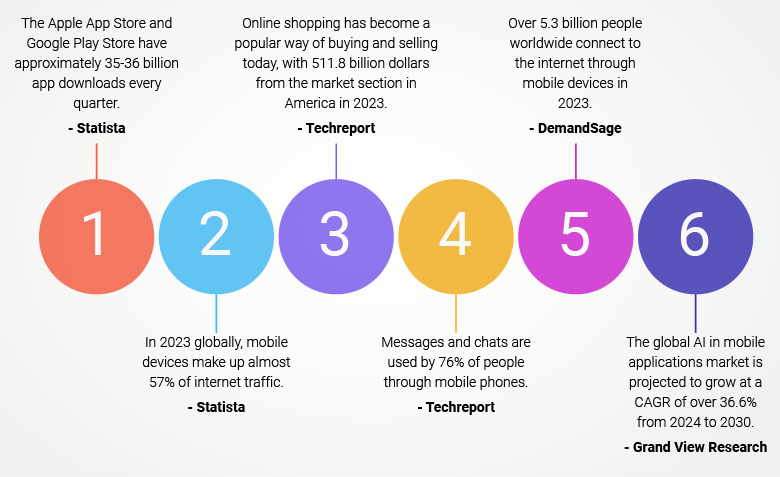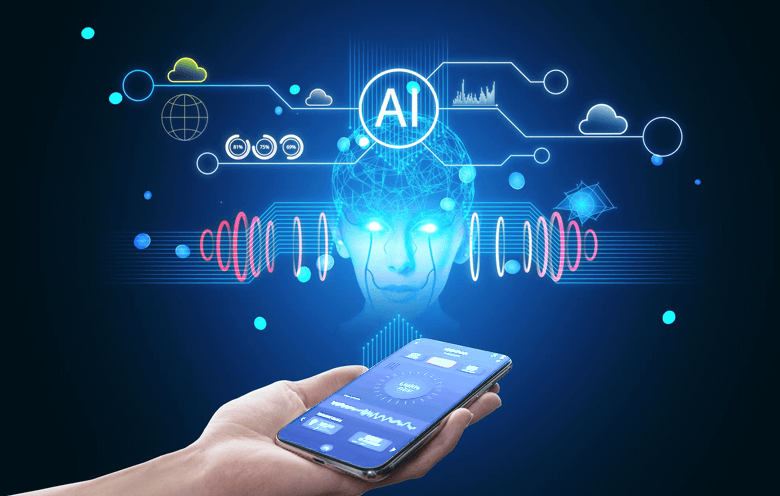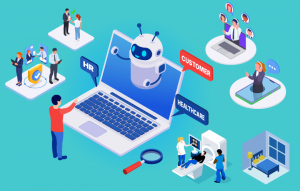The evolution of mobile phones over the past few decades has been remarkable, progressing from simple bar phones to the explosive rise of smartphones. With the rise of smartphones, mobile apps became essential tools, expanding phones’ functions beyond just calls. Smartphones now let users do shopping, make banking transactions, transfer money, take pictures, record audio, play games, listen to music, watch videos, calculate, set alarms, and more, replacing many other devices.
Thousands of apps are available in the marketplace to serve various purposes, creating intense competition in the mobile market. Companies now face the challenge of making their apps stand out and securing a place on customers’ devices to drive business. This never-ending race has created an urgent need for innovative strategies to stay ahead of the competition.
Hence, mobile app development has become a critical component for businesses seeking to engage with their customers, streamline operations, and drive growth in an increasingly digital world. However, developers often face challenges such as maintaining user engagement, ensuring app performance, and integrating advanced features seamlessly. These hurdles can hinder the ability to deliver high-quality, responsive, and user-friendly applications.
Artificial intelligence (AI) is a transformative solution to all these challenges. By leveraging AI, businesses can overcome these obstacles through enhanced personalization, predictive analytics, and automated testing. AI-driven insights enable developers to create apps that not only meet but anticipate user needs, offering superior user experience. Partnering with a leading mobile app development company ensures that these advanced AI capabilities are seamlessly integrated into your app for maximum impact.
Suggested: 6 key trends defining the future of mobile app development in 2024
AI evolution in mobile app development
The integration of AI into app development has evolved significantly, reshaping how applications are designed, developed, and deployed. Initially, AI was utilized for basic functions such as predictive text and speech recognition. However, advancements in machine learning, natural language processing, and data analytics have expanded AI’s role, making it an indispensable tool in modern mobile app development.
Today’s AI capabilities go beyond simple automation, enabling sophisticated features like personalized user experiences, intelligent search, and advanced security measures. Machine learning algorithms analyze user behavior and preferences, allowing apps to deliver highly tailored content and recommendations. Natural language processing has revolutionized customer support within apps, with chatbots and virtual assistants providing instant, accurate responses to user queries.
Moreover, AI’s impact on app performance and maintenance is profound. Automated testing powered by AI ensures that applications are rigorously vetted for bugs and performance issues before launch, reducing time-to-market and improving quality. Predictive maintenance helps in foreseeing potential problems and addressing them proactively, ensuring seamless user experiences.
How mobile app development is helping businesses:
Engagement – Mobile apps tend to drive better engagement and have conversion rates around 100-300% higher than those of desktop web viewing and mobile-optimized websites. – Research.com
Personalization – As per McKinsey, personalization in marketing can boost marketing ROI by 10-30%.
Chatbots – Gartner says that 31% of customer communication managers have implemented chatbots or plan to do so in the near future and estimated that by 2025 customer service chatbots may increase operational efficiency by 25%.
Voice-assistants – The use of voice assistants in mobile apps is growing, with over 1.8 billion people using voice-activated apps and services by 2023. – Juniper Research
Brand awareness – According to Statista, the average person spends over 4 hours on their smartphone each day. By offering a mobile app, organizations can boost customer loyalty, increase in-app purchases, and enhance brand perception.
Some figures that show the significance of AI integration in mobile app development

Benefits of AI in mobile app development
1. Enhanced user engagement:
AI enables apps to offer personalized experiences based on user behavior and preferences, leading to increased user engagement and retention. Personalized recommendations and content delivery ensure that users receive relevant information, enhancing their overall app experience.
2. Improved operational efficiency:
AI-driven automation streamlines app development processes, reducing manual intervention in tasks such as testing, debugging, and data management. This efficiency not only accelerates time-to-market but also lowers development costs, enabling businesses to allocate resources strategically.
3. Advanced analytics and insights:
AI-powered analytics provide deep insights into user interactions, enabling businesses to make data-driven decisions. Predictive analytics forecasts user trends and app performance metrics, empowering proactive adjustments and feature enhancements.
4. Enhanced security:
AI enhances app security with advanced threat detection and real-time monitoring capabilities. Machine learning algorithms identify suspicious activities and potential breaches, safeguarding sensitive user data and maintaining trust.
5. Competitive advantage:
By integrating AI, businesses differentiate their apps with innovative features and functionalities, positioning themselves ahead of competitors. AI-driven apps not only meet but anticipate user expectations, establishing long-term loyalty and market leadership.
Use cases of AI in mobile app development
Healthcare:
- Personalized health monitoring apps using AI for diagnostics.
- AI-powered chatbots for patient consultations.
- Predictive analytics for early disease detection.
Retail:
- AI-driven recommendation engines for personalized shopping experiences.
- Visual search capabilities for product identification.
- AI-powered virtual assistants for customer support.
Finance:
- AI-based fraud detection and prevention in mobile banking apps.
- Personalized financial advice and investment recommendations.
- AI-driven chatbots for customer service and account management.
Education:
- AI tutors and personalized learning paths in educational apps.
- Automated grading and feedback systems.
- AI-powered content recommendations based on learning patterns.
Travel and hospitality:
- AI-powered virtual travel assistants for itinerary planning and booking.
- Predictive analytics for personalized travel recommendations.
- Real-time language translation capabilities for international travelers.
Entertainment:
- AI-based content recommendation engines for video and music streaming apps.
- Personalized content curation based on user preferences.
- AI-driven interactive storytelling and augmented reality (AR) experiences.
Automotive:
- AI-powered navigation and route optimization in car-sharing and navigation apps.
- Driver behavior analysis and personalized driving tips.
- AI-driven voice assistants for hands-free operation and vehicle control.
Real estate:
- AI-driven property search engines with personalized recommendations.
- Virtual tours and augmented reality (AR) for property visualization.
- Predictive analytics for real estate market trends and investment opportunities.
Manufacturing and supply chain:
- AI-powered maintenance scheduling and predictive maintenance in industrial IoT apps.
- Quality control and defect detection using AI-driven image recognition.
- Supply chain optimization and logistics management with AI-powered analytics.
Suggested: 4 key use cases of artificial intelligence in mobile app development
Leverage AI in app development to stay ahead in the competitive marketplace
AI’s capability to analyze large datasets in real-time ensures optimal performance and continuous improvement. Integrating AI into mobile app development not only addresses current challenges but also positions businesses at the forefront of innovation, driving competitive advantage in a rapidly evolving market. The future of mobile apps lies in the seamless integration of AI, transforming how users interact with technology every day.
Thus, integrating AI requires in-depth knowledge and expertise and you must enlist the help of a mobile app development services provider for successful implementation and optimal results. As AI continues to advance, its integration into mobile apps is set to redefine user experiences and industry landscapes alike. Embrace this transformative technology to stay ahead of the competition and unlock new opportunities for growth.









